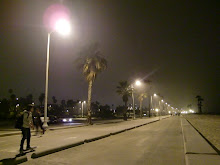
Kaeru pyoko pyoko mi pyoko pyoko (Frogs are jumpin' jumpin' three frogs jumpin' jumpin')
Awasete pyoko pyoko mu pyoko pyoko (frogs jumpin' jumpin' six frogs jumpin' jumpin'..)
Tonarino kyakuwa yoku kaki kuu kyaku da (the neighbor's visitor eat a lot of persimmon!)
Tokyo tokkyo kyokakyoku cho ( Tokyo patent office chief )
These are traditional tongue twisters widely known among Japanese. A tongue-twister is a phrase that is designed to be difficult to articulate properly. Tongue-twisters may rely on similar but distinct phonemes (e.g., s [s] and sh [ʃ]), unfamiliar constructs in loanwords, or other features of a language. (defined by wikipedia)
As an English learner, I found that English tongue twisters would help me English pronunciation, especially the sounds which are different from the ones of my mother tongue. For example, /s/ and /sh/ are difficult sounds for Japanese learners even though we have similar sounds. Here is the example of English tongue twister.
She sells sea shells by the seashore.
The shells she sells are surely seashells
So if she sells shells on the seashore,
I’m sure she sells seashore shells.
Can you say these quickly??

Here's another one to add to your repertoire:
ReplyDeletePeter Piper picked a really pickled pepper on the way to Pepperidge Pike.
This one usually gets some exasperated chuckles out of my students.
Want a German one? Fischer's Fritz fischt frische Fische. Frische Fische fischt Fischer's Fritz.
ReplyDeleteThere's also another common English one: How much wood would a woodchuck chuck if a woodchuck could chuck wood? A woodchuck would chuck as much wood as a woodchuck could chuck if a woodchuck could chuck wood. Don't ask me to say them fast, though.